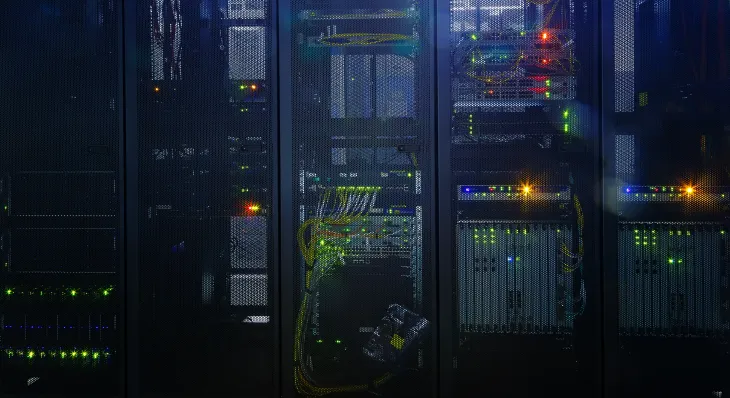Data centre giants are aggressively expanding operations, but the availability of suitable space and access to electricity are failing to match the pace.
European data centres are facing a severe shortage of space, exacerbated by the skyrocketing demand for artificial intelligence (AI) applications clashing with limited expansion possibilities, industry participants warned.
Kevin Restivo, who leads European data centre research at CBRE, expressed grim prospects during a conference on the sector in Amsterdam. “There is no relief in sight,” he emphasized. Data centre giants such as Amazon, Microsoft, Google, Meta, Oracle, and ByteDance, the parent company of TikTok, are aggressively expanding operations, but the availability of suitable space and access to electricity are failing to match the pace.
CBRE’s forecasts paint a concerning picture, with average vacancy rates across major European markets—Frankfurt, London, Amsterdam, Paris, and Dublin—expected to plummet to a new low of 8.2% in 2024, following a previous record low of 10.6% in 2023. While this trend spells good news for data centre operators, it presents significant challenges for European businesses seeking space.
Stijn Grove, director of the Dutch Data Centre Association, dismissed calls for European “sovereignty” in cloud computing and AI as unrealistic. He pointed out that industry giants like Amazon, Microsoft, and Google possess the financial muscle to secure scarce power and essential components such as data centre chips from Nvidia. In contrast, European cloud operators, although of high quality, lack the scale and resources to compete effectively.
Grove highlighted the absence of a cohesive European strategy to tackle issues like electrical grid congestion and zoning regulations, including the prevalent “not in my backyard” sentiment. He emphasized the impracticality of desiring the benefits of data centres while opposing their establishment. Without a unified approach to address these challenges, the situation is likely to worsen, placing additional strain on the region’s digital infrastructure.
While second-tier markets such as Berlin, Milan, Zurich, and Warsaw are expected to witness capacity expansions of over 10% this year, vacancy rates in these areas are also declining. This indicates a broader trend of scarcity and heightened competition for available data centre resources across Europe.
The imbalance between supply and demand in the data centre sector underscores the urgent need for coordinated efforts to alleviate pressures on infrastructure and facilitate sustainable growth.
Without decisive action, Europe risks falling behind in the global race for digital innovation and competitiveness. Industry leaders and policymakers must collaborate to develop pragmatic solutions that ensure the region’s data infrastructure can support the evolving needs of businesses and consumers alike.
